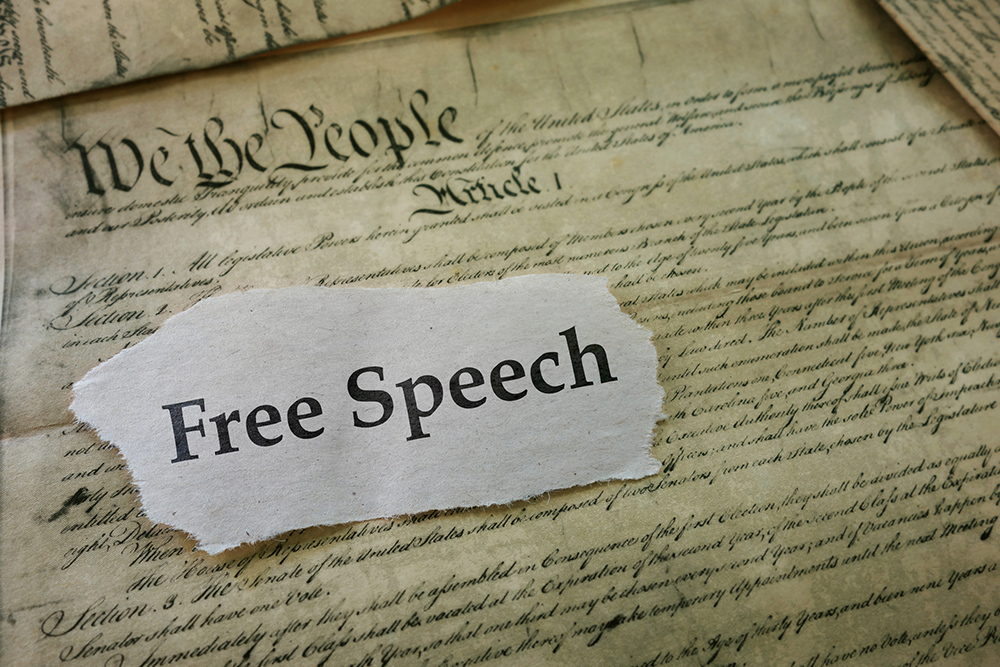With the NBA season set to begin this month, so many eagerly anticipated storylines are being discussed. Would the Clippers and Lakers live up to expectations and make Los Angeles the place to be this season? How are teams going to match up with the Sixers’ massively sized lineup in today’s era of small ball? In this era of player empowerment, as I wrote about last week, what other moves may be on the horizon? In general, this season—the first in a while without a clear-cut preseason favorite—is gearing up to an exciting one.
Unfortunately, one unanticipated storyline drowned out the rest: China. As many people know by now, several weeks ago, Daryl Morey, General Manager of the Houston Rockets, tweeted a message of support to protesters in Hong Kong. This tweet subsequently resulted in considerable backlash, including strongly worded statements of dissatisfaction from Chinese authorities, the cancelation of exhibition games in China, and a whole host of other actions.
The NBA’s commissioner, David Silver, admitted that the league has suffered significant financial losses as a result of this issue, and experts believe the league’s salary cap for next year may be affected due to the league’s reliance on certain revenue from China, which may now be in jeopardy.
Misunderstanding the Right to Free Speech
As is often the case, people within and outside the NBA all had to weigh in on this controversy. Certain people criticized Morey, either for making the comment altogether or for Morey’s timing in making the tweet on the eve of the NBA’s visit to China for certain exhibition games and outreach events. Others sided with Morey and, in doing so, often referenced their support for his “right to free speech.” Yet people still continue to have a misconception about the right to free speech.
The First Amendment provides citizens with the right to free speech protected from any government retaliation or interference. With some exceptions, generally speaking, there is no right to free speech in the context of the private workplace. Legally speaking, the NBA and the Houston Rockets have the ability to discipline Morey for his tweet due to its harmful impact on their bottom line. But being socially conscious employers that are highly visible publicly, they aren’t going to do so.
It’s the same reason David Silver and the NBA decided, on the other hand, that they had no choice but to ban Donald Sterling, the prior owner of the Clippers, for life when unconscionable racist comments made by him came to light. The NBA cares about not just its financial bottom line but also its image in the public eye (which, let’s be honest, also impacts its bottom line).
Free Speech Rights in the Workplace
There are certainly some protections and limitations within the workplace when it comes to speech and expression. The National Labor Relations Act (NLRA) gives private employees the right to discuss their working conditions, including pay, benefits, safety, and other work-related conditions, as this is considered “protected concerted activity.”
In addition, employees under both federal and state law are protected from harassing and discriminatory remarks and conduct, and therefore, employers have a legal obligation to police and prohibit this type of behavior and speech. Other than this, there aren’t any free speech laws at the federal level applicable to private employers, although there are certain states that have “political activity” or “off-duty conduct” laws that give employees rights not provided at the federal level.
Employers, therefore, should have a clear written policy that sets forth what activity, speech, and conduct are permitted and prohibited within the workforce. Of course, employers must set these parameters on employee workplace speech so that they don’t fall under the umbrella of the NLRA. Additionally, it is, of course, of paramount importance that any such guidelines be crafted and uniformly enforced so all employees are treated equally. However, the reality is that what your company decides to permit or prohibit will be based on the culture that exists or that you want to foster.
The news is filled with companies that have decided to publicly take a position on various issues, whether those issues include gun control, the support of specific political candidates or certain political positions, Time to Vote campaigns, and various other causes. These companies also actively permit and, in some cases, encourage their employees to discuss these issues. The reality is that these companies are not encouraging “free speech” in the workplace because they are required to by law. It is because these companies either have an interest in being known as the type of establishment that encourages employees to express their ideas or have a certain “brand” that they want to cultivate within the public consciousness.
So next time people say or tweet something controversial and don’t receive any punishment from their employer for it, don’t be one of those people who says, “Well, they exercised their right to free speech and therefore couldn’t face discipline.” Be one of those people who says, “Their right to free speech doesn’t extend to that comment, but their employer couldn’t terminate them because it didn’t want to look bad to the public or its other employees.” Not only will you be right, but you’ll also sound smart saying it.



